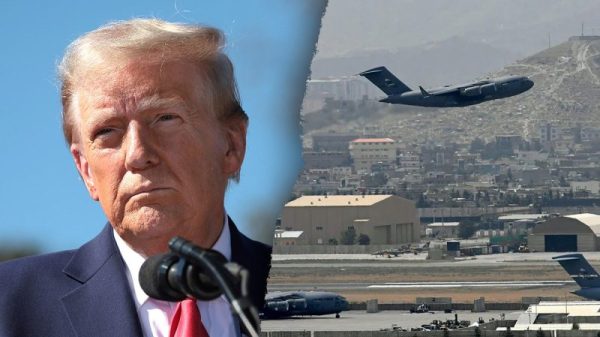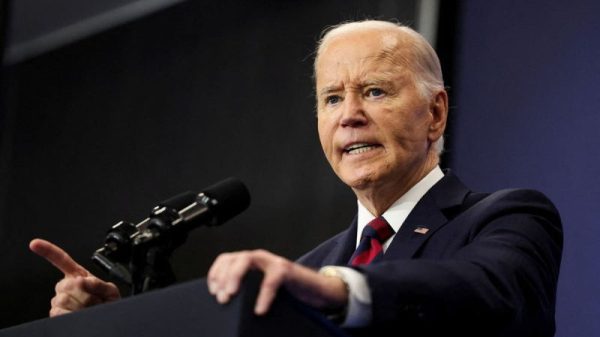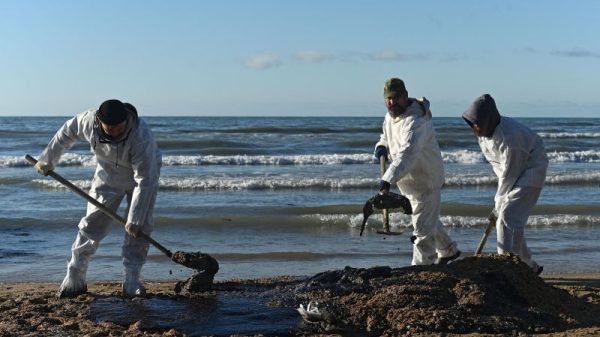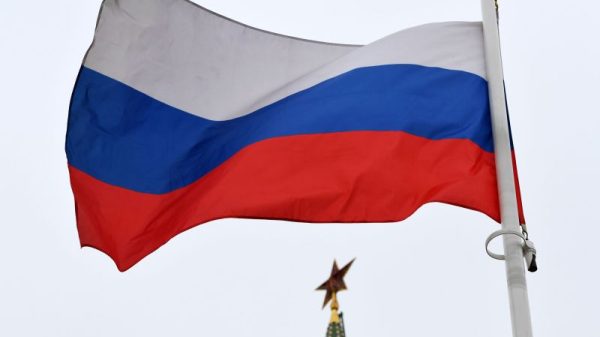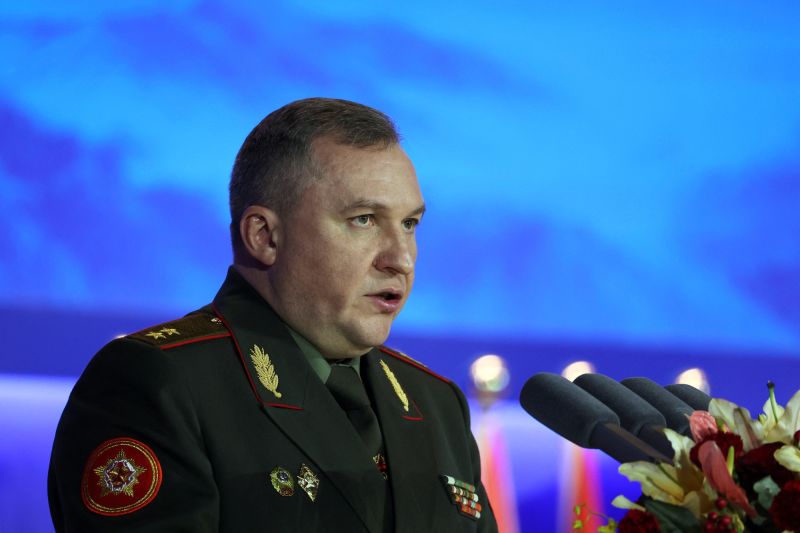Belarus on Friday adopted a new military doctrine that – if approved – would be the first step toward deploying nuclear weapons across the country.
“The deployment of tactical nuclear weapons on the territory of the Republic of Belarus is considered an important measure of the preventive deterrence for potential adversaries from unleashing armed aggression against the Republic of Belarus,” Belarusian Defense Minister Viktor Khrenin told a briefing Friday.
Belarus had been “forced” to put the measure in place, he added.
According to Khrenin, “a separate chapter was created” to describe the course of actions “in the event of armed aggression” against Belarus’ allies in the Collective Security Treaty Organization (CSTO) and the Union State.
The CSTO is a Russian-dominated group of six post-Soviet states, that, similar to NATO, requires members to come to each other’s aid when under attack.
Formed in 2002, the six countries are Russia, Armenia, Kazakhstan, Kyrgyzstan, Tajikistan and Belarus.
The Union State of Belarus and Russia Treaty sets up a legal basis for a wide-ranging alliance between the two countries.
Khrenin emphasized that the new doctrine demonstrates that Belarus “does not treat any nation as its enemy, regardless of the actions of the governments of these nations.”
The doctrine still requires approval from the All-Belarusian People’s Assembly, a representative body that operates in Belarus in parallel with the parliament, which will be held in April, according to Russian state media RIA Novosti.
Khrenin said the interest of his government lies in “restoring the influence of international security organizations such as the UN, OSCE and others, and their effective functioning in preventing and resolving armed conflicts.”
Belarus “is open to cooperation in the military sphere with any countries, including NATO states,” he said, “provided their aggressive rhetoric against Belarus is stopped.”
Minsk has played a key role in Russia’s war in Ukraine. Last June, Russian nuclear warheads were reportedly delivered to Belarus for “deterrence,” according to Russian President Vladimir Putin.
Two months later, while stressing that his country would not get involved in the war, President Alexander Lukashenko warned that it would “immediately respond with everything we have,” including nuclear weapons if provoked – especially by neighboring NATO countries like Poland, Lithuania and Latvia.
Baltic states reinforce borders
The move by Belarus came as neighboring Baltic states signed an agreement to reinforce their borders with Belarus and Russia.
In a statement Friday, the Estonian Defense Ministry said the country had signed an agreement with Latvia and Lithuania to “construct anti-mobility defensive installations” on the borders with Russia and Belarus that will “deter and, if necessary, defend against military threats” in the coming years.
The ministry called it “a carefully considered and thought-out project, the need of which stems from the current security situation.”
The concept of defensive installations includes “prevention and field security measures,” such as “a network of bunkers, support points, and distribution lines,” it said.
“Russia’s war in Ukraine has shown that in addition to equipment, ammunition, and manpower, physical defensive installations on the border are also needed to defend Estonia from the first meter,” said Hanno Pevkur, the Estonian Minister of Defense.
The countries’ defense ministers also signed “a Letter of Intent for HIMARS multiple rocket launchers, aiming to create a framework for the joint use of the weapon system in both peace and wartime,” the statement said.
During an interview with state news agency Belta in August last year, Belarusian leader Alexander Lukashenko said his country did not “bring nuclear weapons here in order to scare someone.”
“Nuclear weapons represent a strong deterring factor. But these are tactical nuclear weapons, not strategic ones. This is why we will use them immediately once aggression is launched against us,” he added.













